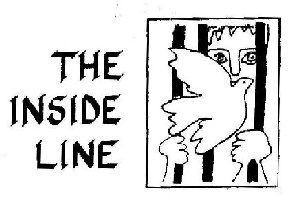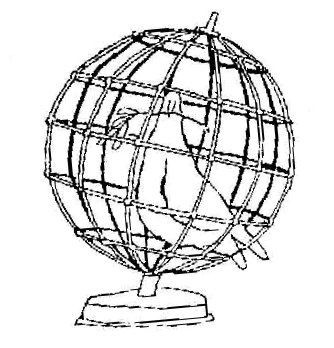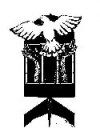



- FROM ALLENWOOD
(SACHIO KO-YIN)
THE INVISIBLE COLLEGE
(reprinted from the Catholic Worker)
I am so thankful for finding this beautiful peace community, of all places, here in prison. Brandon, Frank, Andrew, Martinez and others - I wish I could write to you about each of them; their friendship and belief in peace has put me to shame. When I took part with Daniel in the Minuteman III Plowshares, comrades on the outside expressed their concern that I would be more useful to peace "in" society, and would be "missing in action" from the movement. I responded that I'd been an organizer for seven years, and now would take up a vigil in prison, a witness for nuclear disarmament.
But, if I were back there today, knowing what I have learned from these
comrades on the inside, I would respond very differently. In my fantasy,
this is what I would say: "Service work, nonviolence organizing and
writing articles can be done in New Jersey, and I imagine it can all be
done in Taiwan or Nigeria. Would you say I was not 'in' society if I did
this work in Taiwan? Prison is also a society, and a culture, and, having
witnessed against the nuclear arsenal, I will find myself the privileged
guest of the poor and the minorities that America is locking up at such
an alarming rate. My hosts will be the perpetual victims of America's war
on drugs. They're the same people we've devoted ourselves to in continuing
this nonviolent experiment."
Prison Is Society
It's clear to me now that civil disobedience has not taken me out of society, it has only taken me to prison. I feel as if I am as much a part of our movement as I ever was, and, furthermore, my convictions have intensified. I confess that, after I was in prison for a month, I dreamed of a future release, and the promise of an early retirement from peace work. This daydream was sweet, but it's gone now. More than ever, I want take part in the world's transformation. More than ever, I believe our ideal is vitally relevant and practical to our condition. Whether it's government imprisoning the poor, or a nuclear exchange, or the greater crime of poverty and alienation amid the most powerful empire on the earth, this ideal of Love, of compassion manifest, has an unrelenting relevance, and is a passionate answer to our present time. It is my brothers in prison who remind me, and teach me.
I want to tell you a little more about this prison society, because it means so much to me, and because it's so relevant to our lives of service and resistance.
The United States has 5% of the world's population, and yet it incarcerates 25% of the world's prisoners. The number of U.S. prisoners is now 2 million! (This figure would be more like 6 million if it included our friends on supervised release, home confinement, etc.) Now, each of these numbers is a living creature... The men whose snoring I hear at nighttime, who laugh or ask about dreams at breakfast, these are they, face to face, precious beings often entangled in the web of crime, and now amputated from family and dignity, and warehoused for no apparent purpose. It's not rehabilitation. It's not abolishing the conditions that foster crime. It needs attention, but life goes on around us.
So, in the mutual care of my friends and the peace community that has gathered here, we are faced with several classic paradoxes of nonviolence that will sound familiar.
1) In this totalitarian world where our most personal spaces are inspected by police, how do we love our oppressors? When screamed at or humiliated by guards, how do we remain mindful of their humanity? My brother Raymond says, "Cops are people. They're very misled, but they're still people."
2) How do we practice inward peace and detachment, but not become accepting of prison injustice? When we're together, it's as if the prison vanishes. But, we know in our hearts that, for millions, it does not. Is think this inward peace can give us strength to fight harder. Peacefully, we can raise our voices and calmly, sound the alarm.
3) How can we serve the poor? Even in federal prison, there are wandering souls, pushed to the margins, with few friends and little direction. Can we befriend them and involve them in our community? And, for countless others who have practical but unanswered needs, can we use outside friends to assist them? Breaking the habit of stepping over the ignored is as hard in prison as it is on the streets.
4) How do we reconcile our principles to our surroundings? Brandon and I talk about this all the time. We share the wonderful idea of a world where community has replaced both militaries and governments, and the resources of nature are shared in common; but we also know that chasing after a perfect future is not conducive to the present. So, we have this thought that the perfect future should be manifest in our daily lives. Ron has an amazing spiritual practice of gathering fruit every week, mindfully chopping it, and lovingly putting it all into bowls. Every Sunday night, we gather for fruit salad. It sounds so simple, but it's so meaningful for us, and truly it is a present moment of the perfect future. And this, we think, is exactly how it's done.
Prison is society, as I've learned. And peace work and community here have challenges similar to what you face on the outside. How do we not accept the status quo? How do we engage with the neglected? And how do we manifest our freedom in the present? These are the same questions we all face, but in here, I have learned to see them in a new light. Peter Kropotkin called prison the college of crime. But it's also the college of the spirit's resilience. I'm learning these lessons all over again in the invisible college of my people.
[Sachio Ko-Yin is serving a 30 month prison sentence for his part
in the August, 1998 Minuteman III Plowshares disarmament action.]
